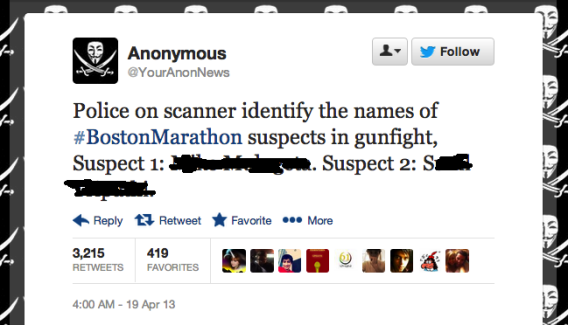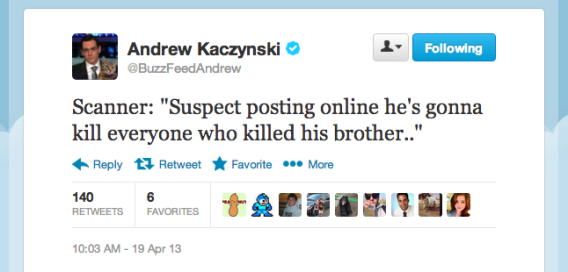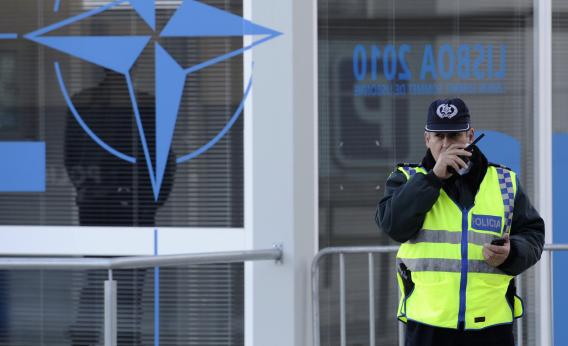In the chaos of Hurricane Sandy, Twitter was riddled with false reports from people listening to the police scanner. Local news reporters have long understood that the scanner is a source of rumors, tips, and leads to follow up on—but not a reliable source of confirmed facts. Twitter didn’t seem to get that. In the wake of the confusion, I wrote a blog post: “Dear Twitter, Don’t Believe Everything You Hear on a Police Scanner.”
Today that admonition feels relevant again. In the past eight hours, Twitter has lit up several times with reports that people are taking as true because they heard them on the scanner. Among them was a report that police had named the two suspects in the Boston bombings and the MIT shootout. But those names were apparently the wrong ones, and two innocent people had their names disseminated widely as terror suspects.

Screenshot / Twitter
Later Friday morning, once the actual suspects had been identified, there was another burst of Twitter activity:

Screenshot / Twitter
Again, the fact that the info was on the scanner did not make it true. Those postings quickly turned out to be from a fake account created Friday morning.
So here’s the twist: In this case, the false information that Twitter was getting from the scanner was actually false information that the police on the scanner had gotten from Twitter, closing the false-information feedback loop. And, in fact, the false suspect names also surfaced on the Internet, including Reddit, before they were heard on the scanner.
One more time, then, with feeling: The police scanner, like Twitter itself, is often a source of unconfirmed information. That doesn’t make it useless. But it does highlight the absurdity of saying that a rumor floating around on the Internet has been “confirmed” by police on the radio. It’s really not much different than saying that a rumor floating around on the police scanner has been “confirmed” by people using Twitter.
Read more on Slate about the Boston Marathon bombing.
